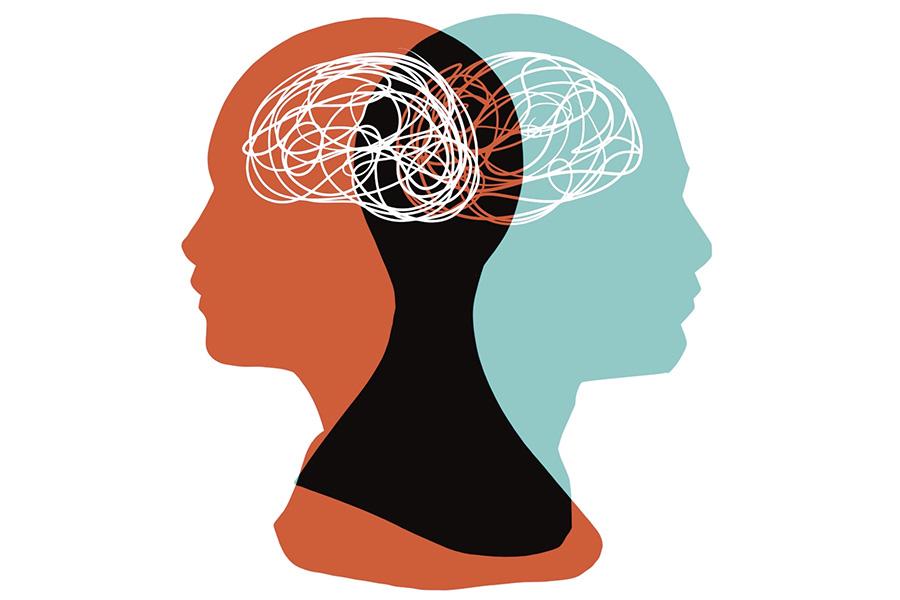Inpatient Mental Wellness Services: A Path to Healing and Stability
Inpatient mental wellness services play a crucial duty in attending to acute mental dilemmas, using a carefully organized atmosphere that promotes recovery and stability. These solutions not just include thorough assessments and individualized treatment plans but also supply constant access to restorative interventions and medical support. The significance of this approach extends past instant alleviation, suggesting a transformative influence on lasting mental wellness. Nevertheless, the complexities of the admission process and the value of aftercare raising vital inquiries regarding accessibility and efficiency in the more comprehensive context of mental wellness treatment. What implications might these variables have for people looking for aid?
Recognizing Inpatient Mental Health Services
Inpatient mental wellness solutions are vital for giving structured and intensive care to people experiencing serious psychological distress or mental disorder. These solutions commonly entail the admission of clients to specialized facilities where they get continuous guidance and support from a multidisciplinary team of mental health and wellness experts. The primary goal of inpatient care is to maintain patients, guaranteeing their security and resolving acute signs and symptoms that may present a danger to themselves or others.
Inpatient programs often consist of a variety of therapeutic treatments, including specific and group therapy, drug management, and psychoeducation. The structured environment is developed to advertise recovery by supplying a consistent regimen, reducing outside stressors, and helping with the growth of dealing strategies.
When outpatient treatment options have actually proven insufficient or when a client is in situation,Admission to inpatient services is typically considered. Facilities may vary in regards to their certain focus, with some focusing on particular disorders such as clinical depression, stress and anxiety, or material use. Via detailed evaluations and tailored therapy strategies, inpatient mental wellness solutions aim to provide the necessary assistance for people to regain stability and get ready for a transition to less intensive degrees of treatment.
Benefits of Inpatient Care
The advantages of inpatient care are substantial, specifically for people dealing with acute psychological health and wellness difficulties. Inpatient therapy supplies a structured setting that fosters healing by decreasing stressors and distractions associated with daily life. This controlled setting permits patients to focus exclusively on their mental health and wellness, assisting in the required time for recovery.
In addition, inpatient care deals 24/7 access to therapeutic and clinical assistance. This constant availability guarantees that people can receive immediate focus during dilemmas, which is critical for those experiencing extreme episodes - inpatient mental health services. The joint method amongst clinical team, consisting of psychoanalysts, registered nurses, and therapists, enhances the high quality of care and advertises a thorough treatment strategy customized to private demands
Additionally, the common facet of inpatient care promotes a feeling of belonging and support amongst people. Group treatment sessions and shared experiences can reduce feelings of isolation, encouraging people to engage in their recovery proactively.
Moreover, inpatient programs frequently provide people with crucial coping strategies and abilities that can be challenging to develop in outpatient settings. By dealing with underlying problems within a supportive structure, inpatient treatment can lead to more stable outcomes and a smoother shift back to day-to-day life, eventually paving the course to sustained healing.
Treatment Strategies and Therapies
Different treatment methods and treatments are used in inpatient mental wellness solutions to resolve the special demands of each client. These methods are designed to assist in recovery and advertise emotional stability in a structured atmosphere.

Cognitive Behavioral Therapy (CBT) is a widely utilized method, aiding individuals in determining and changing negative idea patterns that add to their mental health and wellness problems - Inpatient Mental Health Facility. her explanation Dialectical Behavior Modification (DBT) is an additional reliable approach, specifically for those with borderline character problem, concentrating on emotional guideline and interpersonal performance
Pharmacotherapy plays a crucial duty in treatment, with psychiatric medications recommended to take care of symptoms of problems such as anxiousness, depression, and schizophrenia. Routine tracking and changes ensure the effectiveness of these medications while lessening adverse effects.
Team therapy fosters a sense of neighborhood and support amongst people, permitting them to share experiences and dealing methods. Furthermore, all natural treatments, such as art and music therapy, advertise self-expression and psychological recovery.
Ultimately, the combination of these diverse therapeutic methods offers an extensive therapy strategy customized per individual's certain demands, aiming to enhance their overall well-being and facilitate an effective change back right into daily life.
The Admission Process
Navigating the admission process for mental health services is a vital first action towards healing. Throughout this assessment, the person's mental wellness history, signs and symptoms, and instant requirements are thoroughly examined.
When the analysis is finished, the next action involves reviewing the potential treatment alternatives. The private and the therapy team collaboratively select the best strategy, which may include inpatient care if the circumstance is considered extreme. This is complied with by the conclusion of needed documentation, including insurance verification and permission forms, to guarantee that all monetary and legal aspects are resolved.
In addition, family members involvement may be motivated during this phase to offer assistance and collect point of views on the individual's situation. Eventually, the admission procedure intends to produce a helpful and secure atmosphere for the person, enabling for a smooth change right into inpatient treatment. By taking part and comprehending in this process, people can take an essential step towards accomplishing mental health security and recovery.

Aftercare and Ongoing Support
After finishing an inpatient mental health and wellness program, individuals commonly deal with the critical task of transitioning to aftercare his explanation and continuous support, which are necessary for sustained recovery. This phase is essential for enhancing the abilities and coping mechanisms learned throughout the inpatient stay, guaranteeing that people remain to progress in their psychological health trip.
Aftercare typically entails a mix of outpatient therapy sessions, assistance groups, and medication management. Taking part in normal treatment allows individuals to deal with ongoing difficulties and establish approaches to deal with stress factors in their daily lives. Support system offer a feeling of community and shared experience, fostering link and understanding amongst peers encountering similar battles.
In addition, ongoing support may consist of family involvement, where liked ones are enlightened concerning mental wellness issues and motivated to join the recovery procedure. This alternative method develops a durable support network, boosting the individual's chances of lasting security.
Ultimately, aftercare and ongoing assistance work as a bridge between inpatient treatment and independent living, empowering people to navigate their mental health and wellness obstacles with strength and self-confidence. Prioritizing these sources is crucial for fostering a sustainable recuperation trajectory.
Conclusion

Inpatient mental health and wellness solutions play a crucial role in attending to severe mental crises, using a very carefully organized environment that fosters recovery and security.Inpatient mental health solutions are important for giving intensive and structured care to individuals experiencing serious mental distress or psychological illness. Via detailed evaluations and tailored treatment plans, inpatient psychological wellness solutions aim to give the needed assistance for people to restore security and prepare for a shift to much less intensive levels of treatment.
